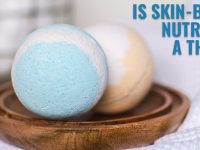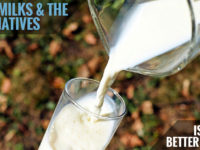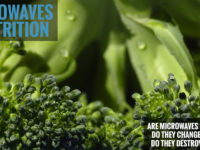I recently came across a few stories in my news feed about a start-up called “Juicero” that aims to be the Keurig of the juice world. The stories themselves were mostly about how the proprietary fruit packs the company sells to be used with their $400 pressing machine can actually just be squeezed by hand (and faster, apparently), but it got me thinking about the weirdly elevated place juice holds in the world of “health foods”. Now don’t get me wrong, I love juice, and it has a place in a healthy diet—but as far as its health properties go, it’s not really any better than soda.
The Myth: Juice is Fruit
There’s no debate—okay, there’s no legitimate debate—about whether fruit is good for you; every meta-analysis I’m aware of positively correlates fruit consumption with health. The same cannot be said about juice, though to be fair there aren’t many studies on the topic. Regardless, there is no doubt that whole fruits provide vastly more nutrition than juice.
To begin with, there’s the fiber problem: juice has very little or none. Fiber isn’t digested or absorbed, but it does serve a few important purposes. It slows digestion down, allowing more time to extract vitamins and minerals. It provides a barrier to the energy (sugar) that fruits contain, slowing absorption and providing a more steady release into the blood. It’s food for our gut bacteria, which provide numerous downstream health benefits. In other words, removing fiber removes a critical component of what makes fruit healthy.
Then there’s the questionable nutritional benefit of juicing a food in the first place. Hypothetically, juicing makes it easier to get more nutrients faster and more conveniently, but there’s never been a single well-done study that shows that increasing your micronutrient intake above RDA levels improves health so the whole idea of improving your nutrition with juice is built on a fundamentally flawed premise. As long as your diet is adequate, juice-based nutrients are worthless—and if your diet isn’t adequate, then adding juice to it is certainly not where I’d suggest you begin!
What’s unquestionably true is that juicing a food does a great job at extracting the sugars and making it possible both to consume more and absorb more. A medium piece of whole fruit contains about 20-30 grams of sugar, depending on its size; by contrast, this is the about the amount of sugar in an 8 ounce (237 milliliter) glass of juice. One takes a few minutes to eat and then a couple hours to fully digest, the other can be downed in ten seconds and fully absorbed in less than a half hour.
Juice isn’t fruit—it’s processed fruit. If we’re going to call juice fruit, we might as well call Coca-Cola “lightly sweetened kola nut extract in sparkling water”.
Juice Is Soda With a Healthy Aura
Perhaps the biggest difference between juice and soda is the price. Inaccurate though it may be, economics has a lot to do with our perception of health (case in point, the aisles of organic junk food sweetened with “natural honey” or cane sugar that command a premium but are no different nutrition-wise than their mass market counterparts).
Soda is cheap; it’s often viewed as a staple junk food of the poor, and judgmentally considered to be nothing more than a source of empty calories contributing to their perceived or real lack of health. On the other hand, juice—and especially expensive, hand-pressed juices—are considered to be healthy and nutritious. The people who can afford to drink expensive juices are also able to afford numerous other healthy lifestyle practices, such as memberships to nice gyms, the free time to pursue outdoor activities, and access to fresh foods (along with the education and time to learn how to effectively cook them). Because the main demographic of upscale juice drinkers tends to be healthy, juices are loaned the aura of healthiness.
(If you want a real world example of this dichotomy, look no further than my hometown: Last November, we passed a “sugar tax” that most Boulderites assumed would tax only drinks they deemed to be “unhealthy”, e.g. soda. When it was revealed that the tax would also affect many kombuchas and other “healthy drinks”, there was suddenly a backlash that there were “unintended consequences” to the bill. Of course, both soda and kombucha contain added sugars, Boulderites just felt like kombucha should be given a pass because it has a perception of health [ungrounded in reality].)
The truth is that any of those upscale juice drinkers could switch their juice for soda and maintain 100% of their health—and conversely, you couldn’t improve the health of an impoverished, overweight person by switching their soda with juice. In the end, juice and soda are both just sources of “empty calories” surrounded by a bunch of marketing.
Juice or Soda, It Doesn’t Matter
In the end, nutrition isn’t the only consideration in your diet. Most of us, especially those who are highly active, have plenty of discretionary calories that we can choose to fill with foods that do not contribute anything aside from calories to our overall nutrition. Juice fits in here, but so does soda; if you’d rather drink a can of Mountain Dew rather than a glass of grapefruit juice, it’s not going to make much of a difference.
Don’t be bamboozled by marketing claims. Juice isn’t fruit; it’s soda derived from a natural source. There isn’t a science-based nutritionist in the world who is going to give a person props for drinking more juice, no matter how fancy it is. If you really want to get the benefits of fruit, eat it whole, and leave it there.












